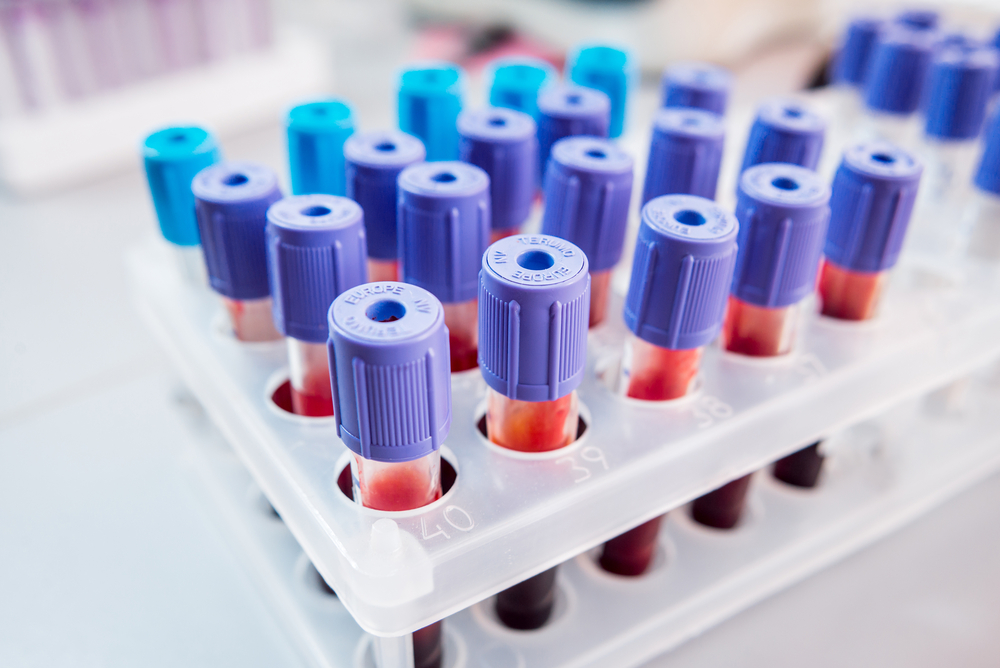University of Huddersfield Team Develops Blood Test for Diagnosing MS
Written by |

University of Huddersfield researchers have developed a blood test for diagnosing multiple sclerosis that avoids the invasive, painful process of collecting fluid from the brain and spine.
The team at the British discussed the test in an article titled “Sphingosine and dihydrosphingosine as biomarkers for multiple sclerosis identified by metabolomic profiling using coupled UPLC-MS.” It appeared in the journal Analytical Methods.
Medical technicians check the blood sample for two biomarkers of MS — sphingosine and dihydrosphingosine. Scientists have discovered that levels of the compounds are significantly lower in MS patients’ blood.
In addition to offering a new diagnostic tool, the discovery may help scientists learn more about the compounds’ role in the disease, potentially leading to therapies.
“Sphingosine and dihydrosphingosine have been previously found to be at lower concentrations in the brain tissue of patients with multiple sclerosis,” the researchers wrote said in a news release. “The detection of these sphingolipids in blood plasma allows the non-invasive monitoring of these and related compounds.”
A Ph.D. student named Sean Ward, the study’s first author, used mass spectrometry and chemometric analytic software to develop the diagnostic method. Spectrometry involves identifying and quantify molecules in mixtures. Agilent Technologies supplied the Mas Profiler Professional software to Ward’s research unit.
In addition to the blood sample research, the software helped Ward analyze the plasma samples of MS patients who had experienced neuropathic pain, a common symptom of the disease. In this work, researchers compared the metabolomic profiles of MS patients who had experienced neuropathic pain with those who hadn’t. Metabolomics is the study of the chemical fingerprints that cell processes leave behind.
“Mass spectrometry data is very complex and there can be thousands of compounds in each sample,” Ward said. The Mas Profiler Professional sofware “allows the abundance of each of those compounds to be compared,” identifying “discrete differences.”
The work was part of an initiative at Huddersfield’s Centre for Biomarker Research. Scientists there have been exploring molecular changes in blood during different disease states as potential diagnostic tools.


